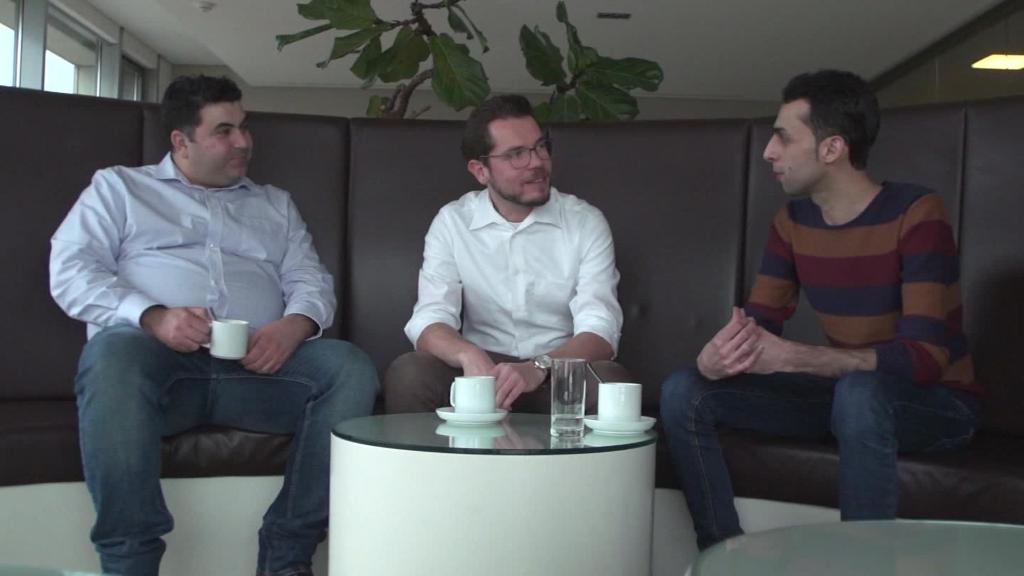
Years of robust growth and rising employment is causing a problem in Germany: Companies can't fill jobs.
There's a shortage of more than 1 million skilled workers, and the problem is particularly acute in the tech industry, construction and healthcare.
Now some employers, including software group SAP (SAP), are tapping into a new source of talent: The hundreds of thousands of refugees who came to Germany in the past few years.
"When I saw the email that said 'welcome! SAP has accepted you' it was so awesome," said Ammar Arran, a 26-year old Syrian who came to Germany in 2016.
Arran was studying management information systems when war broke out in Syria. After trekking across Turkey, Greece and the Balkans, he arrived in Dresden -- a growing tech hub in eastern Germany.
SAP offered him a place on a 3-year study and work program, with German language training and programming experience.
''I do have to learn twice -- the computer language and the German language. So, it is hard but I know this is an opportunity no one gets easily and it's an accomplishment," Arran told CNNMoney.
Related: Germany has an inequality problem
Software companies and semiconductor producers regularly pitch up at job fairs to attract local university students. But it wasn't until SAP employees began volunteering at refugee camps in the area that the company decided to actively recruit some of the new arrivals.

The company now has 150 people in its program for refugees, said Nico Herzberg, head of vocational training at SAP's Dresden office. About 50 will be offered employment at SAP, while others may choose to continue their studies or work elsewhere.
"Here in Dresden we have over 700 people from 20 nations worldwide. So, we are used to that and use the advantage of having different views on a problem," Herzberg said. "What Ammar brings is an experience that none of the other students have."
100 days to fill a job
Looking for new sources of talent also makes economic sense: While the German economy has been growing, the country's population had -- until recently -- been shrinking steadily, and getting older.
According to the German Chamber of Industry and Commerce, 60% of companies say their biggest problem is finding more skilled workers. In some industries it took 100 days to fill a job in 2017, up from 60 days the previous year.
Related: How this Vietnamese refugee became Uber's CTO
"Consequently, some businesses are planning to invest more abroad because they don't find good workers here," said Volker Treier, deputy CEO at the Chamber of Industry and Commerce.
So could the million or more refugees that have come to Germany solve the country's labor shortage? Not quite yet, Treier said.
That's because not all refugees are as qualified as Hossam Rezek, 40, from Damascus. He worked as a web developer and operations engineer for Syrian Telekom before fleeing the war.
When SAP offered him a job in technical support and maintenance he turned it down, explaining that he was better suited to programming. So Herzberg went back and found him a position with a programming team in Dresden.
Related: How a refugee created 3,500 jobs in Britain
Treier said a lack of qualifications and language skills are the key barriers to most refugees finding work.
"So, what we have to do -- and what many institutions are doing right now -- is to fill this gap," he said.
Training refugee recruits of course costs employers time and money. Herzberg said it has paid off so well for SAP that other companies are now asking for advice.
"Don't spend so much time talking about it or worrying if it will work," he said. "I would just encourage all the other companies: Just do it."


